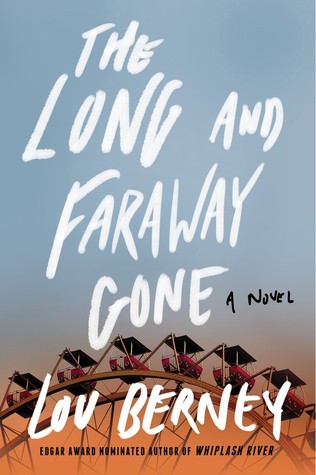More on this book
Community
Kindle Notes & Highlights
People, in Wyatt’s experience, often wanted what they didn’t have. Or, if you preferred an even bleaker perspective, they often had what they didn’t want.
Wyatt was a big believer in the civilizing power of the handshake, of genuine eye contact, of just basically acknowledging the fundamental existence of the person standing in front of you. That didn’t happen as often as you’d think. People lived in their heads. They walked in their sleep. They exchanged vague pleasantries and half glances and were rarely, when it came right down to it—when roll was called—truly present.
“So I’m at Rampart Commons,” he told her voice mail, “and I’m thinking, hey, maybe while I’m here, I’ll buy my girl a little something. A little something we can both enjoy, if you get my meaning, you and me in the privacy of the boudoir. So I go into Victoria’s Secret, right, and get this—they don’t have a single thing that fits me. Can you believe it?
Genevieve stood, sweating, and watched the guy make Indian tacos. After every third or fourth taco, he’d pause, pop a zit, and then sniff his fingertips. That pretty much captured it, Genevieve’s definition of hell: stuck baby-sitting your little sister at the Oklahoma State Fair, a thousand degrees in the shade, the funk of cow shit fuming out from the livestock pens so thick you could taste it, and the Indian taco guy popping zits like they were going out of style.
The landscape of memory was like that. Sometimes the near seemed far, far away and the faraway was right beneath your feet.
Karlene was the second person shot in the head, after Mr. Bingham. Grubb was next, and then Theresa, and then Melody, and then O’Malley. Wyatt, lying between Theresa and Melody, should have been number five.
Why am I still here and all the others gone?
Was memory like a river that slowed over time to a trickle? Or was it like a house with many rooms that became a house with fewer rooms and then finally just a single room you could never leave? Was that the worst fate in the world? It depended, Wyatt supposed, on what room you ended up in.
It was a nice moment, a moment of simple, stupid human happiness, the best kind. And yet even as Wyatt sat in the middle of the scene, he remained outside it, apart, as if partitioned off behind special glass that let in light but not heat. He’d experienced this sensation before. It was like looking at a photo of a family gathered around a roaring fire. The fire warmed the people in the photo but not the person holding the photo. You’d have to be crazy to think it ever would.
Wyatt wanted, so badly, to reach out and take her hand and never let go. But he was cut off, shut out, partitioned behind glass. She was there, and he was here. She was real, and Wyatt was just a memory of a person, a ghost, a dead planet anchored to its orbit while the rest of the universe drifted farther and farther away. He didn’t understand why he was so fucked up. He was the one who had survived.
The memory was original, fresh, intact—not a photocopy of a photocopy, the way most memories were.
Wyatt felt his brain suddenly cut out—the machinery seized up, all the spinning flywheels and humming belts froze in place. For a second, Wyatt was just gliding, silently coasting off the edge of a cliff into the bright blue nothing.


